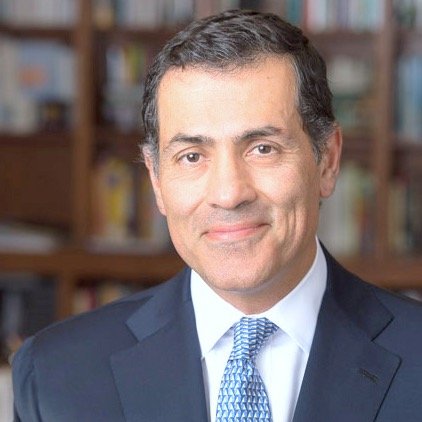Vali Nasr is the author of The Dispensable Nation, which provides an insider’s perspective on the consequences of American foreign policy and diplomacy in the Middle East under the Obama administration. He was formerly the State Department Senior Advisor to Richard Holbrooke, the US Special Representative to Afghanistan and Pakistan. He currently serves as the Dean of the Hopkins School of Advanced International Studies in Washington, DC, and is a member of the Council on Foreign Relations.
In The Dispensable Nation you were quite critical of the manner in which the United States has executed diplomatic action. How closely do you think the current administration’s actions follow the logical progression of events in the United States’ relationship with the Middle East and the Muslim world?
President Obama’s contribution and, I would say, the core of his strategic thinking was to re-balance the American foreign policy approach and move it away from an overreliance on military solutions. [President Obama wanted] to try to find solutions to problems by other means, with a focus on diplomacy. So his biggest accomplishment in this regard, I would say, was the Iran nuclear deal… even if you disagree that this was a perfect solution, whether you are arguing that this was a good deal or bad deal, [that] does not negate the fact that ultimately he was able to deal with an imminent military threat through diplomatic means. He lessened the threat and took the immediate possibility of war off the table.
President Obama actually had a solution. He said we aren’t going to get involved militarily [and that] we can use our soft power, diplomacy, or even corralling other allies around the world into sort of multilateral solutions… Trump basically is taking a wrecking ball to American foreign policy, he doesn’t want alliances, he wants to address problems not militarily… and either he’s not going to address them at all, or he’s going to have to go back to [a] military solution because he has made no [investments] in diplomacy. And the number of senior positions in his national security [team] that he has given to military personnel is worrisome in the sense that he does not understand diplomacy, nor does he know how it is conducted, and furthermore [he] is not committed to it.
There are people on the right that are saying that parts of what Trump did with the Muslim ban were similar to the Obama administration’s 2011 review of vetting procedures for refugees and Special Immigrant Visa holders. What is your view on this issue?
It’s not like President Obama was a pacifist. It’s not either black or white. He’s the president that used drones more than any other president. He was the first president who ordered the execution of an American citizen without due process. So there’s a lot that you can point to the Obama administration as having been fairly hawkish in some situations. But the list of countries they had – this was not some grand vision to solving the world’s problem – this was a narrow tactical tool that was used to address a narrow security problem… Trump is actually trying to elevate what might be a screening process for dealing with counter-terrorism into sort of a centerpiece of American foreign policy. There’s a big difference there.
What do you think is the future of the Muslim ban? How will the Muslim ban affect our foreign policy?
Well right now the way it has been laid out, it has support among some countries in the Middle East because it is targeting Iran and Iran’s two principal allies, which are Iraq and Syria… If you were going to attach an identity to it, I would say it’s not so much a Muslim ban as in the Middle East it would be seen as a Shi’a ban. That’s why Iran’s main rivals in the Middle East – Saudi Arabia, United Arab Emirates, etc. – have been fairly supportive about this because they don’t see it as a ban on Muslims. It’s definitely not a ban on their citizens or anybody passing through their airports. It’s a ban essentially on Iran, all Iranians, Iraqis, and Syrians…But, the Muslims themselves will come to interpret this in their own way, regardless of the intentions of the administration. Broadly across the Muslim world, this is seen as a bad omen.
This administration, very immediately, has very clearly associated counter-terrorism with identifying people by their faith and national identity. Then it has to be read in combination with other statements that have been made which are not part of the policy but serve as background – the president telling a Christian radio broadcasting station that he prefers Christians to Muslims when it comes to refugees, or other statements made by his advisors before the administration was even formed, such as his chief strategist Steven Bannon very clearly expressing that he would favor no foreigners coming to America period. Taken together, the interpretation outside is that the counter-terrorism and security argument is essentially an excuse for a broader policy of going after Iran and its clients in the Middle East, and problematizing the Muslim presence in the United States by starting with those countries where you can justify immediately to Americans why they shouldn’t come here.
